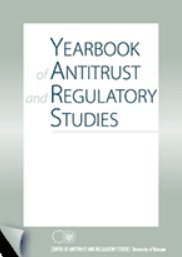Anticompetitive Patent Settlements – Where Are We Ten Years After the European Commission’s Pharmaceutical Inquiry?
Anticompetitive Patent Settlements – Where Are We Ten Years After the European Commission’s Pharmaceutical Inquiry?
Author(s): Anna LaszczykSubject(s): Business Economy / Management, Health and medicine and law, Law on Economics, Financial Markets, EU-Legislation, Court case
Published by: Wydawnictwo Naukowe Wydziału Zarządzania Uniwersytetu Warszawskiego
Keywords: antitrust law; anticompetitive agreements; patent settlements; pay-fordelay agreements; pharmaceutical sector;
Summary/Abstract: In 2009, the European Commission published a final report on its market inquiry into the pharmaceutical sector. The report revealed the authority’s concerns regarding market practices of pharmaceutical originator companies aimed at delaying the market entry of cheaper generic pharmaceutical products. One of the delaying practices identified by the European Commission were patent settlements between an originator and a generic company including: (i) a value transfer from the originator to a generic company, and (ii) an obligation of a generic company not to enter the market. These patent settlements were called pay-for-delay agreements since the payment was allegedly made in exchange for the non-marketentry obligation. The European Commission continued the investigation of patent settlements by its continuous monitoring. It also initiated antitrust proceedings that terminated with huge fines imposed on pharmaceutical companies. The appeals are now pending before the EU courts. Ten years after the publication of the final report on the market inquiry, this article aims to summarise the development of the case law and provide its critical analysis. The article focuses on the analysis of pay-for-delay agreements as infringements of Article 101 TFEU only and does not consider the conclusion of these agreements as an abuse of a dominant position.
Journal: Yearbook of Antitrust and Regulatory Studies (YARS)
- Issue Year: 13/2020
- Issue No: 21
- Page Range: 129-159
- Page Count: 31
- Language: English

